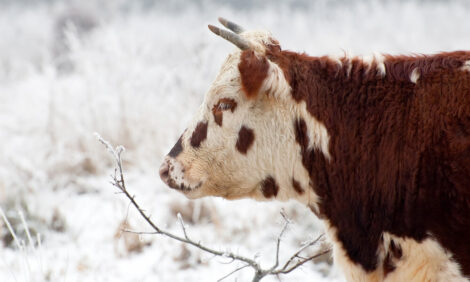



Effects of Calpastatin and Calpain Genes on Beef Tenderness
US - Previous research has shown that two enzymes are responsible for the postmortem meat tenderization process: calpain which promotes tenderness, and calpastatin which inhibits calpain and is therefore associated with meat toughness.U.S. MARC scientists conducted a study to evaluate the association of different genotypes of these enzymes with tenderness, juiciness, and flavor. Three populations of cattle were used: 1) Bos Taurus (BT); 2) Bos Taurus with Bos indicus (Brahman) influence (BT/BI); and 3) purebred Bos indicus (BI).
Those animals in the BT and BT/BI populations that inherited the CC and CT genotypes of the calpastatin gene produced tougher meat than those that inherited the TT genotype. It was also observed that animals inheriting the CC genotype produced blander steaks than those inheriting the CT and TT genotypes. There was no significant association of the calpastatin gene with meat sensory attributes in the BI population.
For the calpain gene, animals in the BT and BT/BI populations that inherited the CC and CT genotypes produced significantly more tender meat than those inheriting the TT genotype in the BT and BT/BI populations, but not in the BI population.
These results indicate that selection for the favorable alleles of the calpastatin and calpain genes would be likely to improve tenderness of beef from populations of Bos Taurus and Bos Taurus/Bos indicus cattle (Casas et al. 2006. J. Anim. Sci. 84:520).
Dr. Rick Rasby, Professor of Animal Science
Animal Science, University of Nebraska - Lincoln, Lincoln, NE
TheCattleSite News Desk


